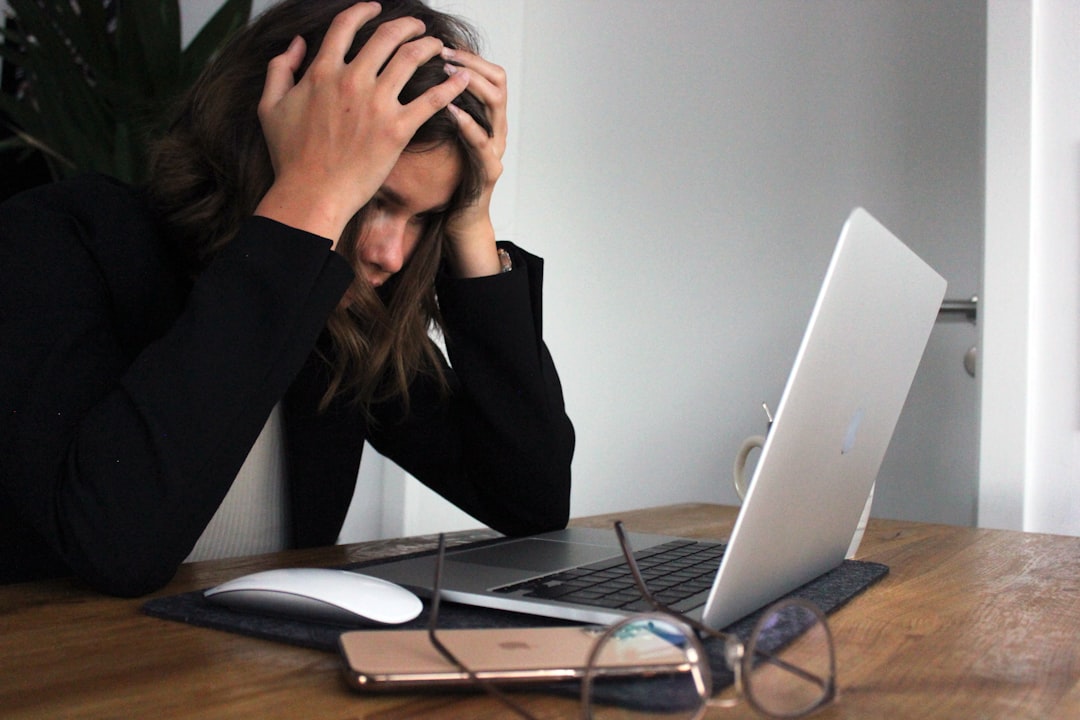When you encounter a social situation that makes you uncomfortable, it may be helpful to take stock of your breathing and think about whether or not you are clenching your jaw.
Chin-clenching is one of the most commonly observed facial expressions. It happens when the muscles in the front of the face start to contract with each breath. The contraction can cause the corners of the mouth to pull down and make a “jaw” appear, but it also can lead to eye strain, fatigue, and anxiety. There are different reasons for clenching your jaws in certain situations, ranging from minor stress to major anxiety.
The good news is that most people can control their clenching — but some people have no control over it at all. It’s important to remember that this phenomenon isn’t just restricted to people with anxiety disorders or tension-related medical issues—it’s also possible for anyone who feels tense in social situations like being on an airplane, waiting for a meeting, or standing in line at an airport terminal.
The clenching of the jaw can signify tension and discomfort in social situations.
The jaw clenching is an involuntary physiological reaction to stress. Normally, the jaw relaxes after a person is relaxed and comfortable. The involuntary jaw-clenching of the mouth and throat muscles is caused by stress and anxiety. Relaxation therapy can help people with social anxiety.
The International Association for Stress Management’s book (IASM) “Stress Management: Strategies and Tactics” provides a good overview of this problem as well as some potential solutions:
The solution is simple:
1) get outside more
2) do more fun things that are less stressful
3) take time off occasionally
4) use relaxation techniques
5) stay away from stressful situations
This common condition affects up to one-third of a million Americans yearly.
It is a common condition for which there is no known cure, but it can be controlled by changing how you relate to others. The problem is not the person who clenches their jaws but the tightness of your own jaw.
There are two main causes of clenching your jaw:
- You are tense and uncomfortable in social situations.
- You are afraid to show vulnerability.
How do you prevent this?
First, relax when you're on a date or with friends, or even with strangers; it helps to smile more, and if you don't like someone's smile or a specific expression on their face, consider making that person feel what they're doing (e.g., "That face means that I'm not interested in you.")
Second, find out what's going on in your mind when people accommodate you by smiling back—is it nervousness? Do you feel their tension too? If so, imagine yourself as if you were smiling at them so that they would feel comfortable again.
Thirdly, if it's anxiety that's causing your jaw to clench up, try this relaxation exercise:
Take a deep breath; hold it for a few seconds; then exhale slowly and deeply through your nose as far as possible without letting it out through your mouth (this will increase concentration). Then repeat the process over again until all the air has been released from your lungs (you may want to consider counting this process). Finally, breathe into an object that gives you pleasure—your favorite blanket or pillow will do—and when you exhale through your nose completely out of the object, breathe into it and let most of its contents go right back into your body (this should help release tension).
Teeth are ground, and jaws clench in this condition.
The clenching of the jaw is one of humans' most commonly observed physical responses and is a perfectly normal response, but it can signify that you are overly tense and uncomfortable in social situations.
Here’s how you can prevent jaw clenching:
1) Relax your jaw. If you find yourself clenching your jaws all the time, that’s a good sign that you aren’t relaxed enough and may be running too much stress on your body. You need to relax your muscles to enjoy life more, not just work harder.
2) Pay attention to the context. It’s easy to get caught up in a situation and forget what is happening around you. No one likes being judged by their appearance or their clothes or by others who think they lack personality because they don’t wear expensive shoes or fancy haircuts. Focus on what is going on around you. If someone says something mean about how much money you make, answer that person with a smile instead of stiffening up in an attempt to conceal how uncomfortable that person made you feel. If someone says something similar about your business, tell them how much fun it was for you and then ask them about theirs!
What are the causes of jaw clenching?
Jaw clenching or grinding of the teeth is a common but typically harmless problem that affects one-third of a million Americans every year, according to the American Academy of Periodontology. The condition is also known as “chin clenching” or “teeth bowing.”
The root cause of jaw clenching is often identified as a change in personality or eating habits. Clenching the jaw can cause discomfort and can even lead to stress and anxiety in some individuals. It may be connected to a person’s mood, health, medical conditions, stress, and eating habits. Jaw clenching can also occur due to poor dental hygiene or poor oral hygiene habits with teeth brushing twice daily. Jaw clenching can be caused by several reasons, such as:
– An inability to relax
– Pressure on the teeth
– An inability to chew properly (e.g., food stuck between teeth)
– Poor handlings and gripes (e.g., not enough pressure on the tooth)
– Poor positioning of the mouth (e.g., missing teeth, gum swelling)
Stress
An interesting study from the University of Nebraska-Lincoln researchers suggests that clenching your teeth may be a sign of stress.
In the study, participants were shown two different short videos in which two actors interacted with each other and a stranger. The videos were staged so that the actors could only speak to one other person at a time. In one scenario, we saw the actor talk to another person while clenching his teeth, and in the other scenario, he talked in a normal voice while clenching his teeth. In both cases, the smiling actor said that they were feeling stressed and nervous, even though their behavior was identical.
The researchers suggest that people may not be aware of the importance of proper dental hygiene because our perception of social interaction often focuses on physical adjustments such as tense muscles or clenched jaws rather than those relating to emotional states like anxiety or fear. It’s easy for us to ignore these parts of our behavior, but their importance should not be overlooked — particularly when there are real consequences for doing so!
Anxiety
The clenching of the jaw can signify that you are tense and uncomfortable in social situations. This common condition affects up to one-third of a million Americans yearly in which teeth are ground and jaws clench.
The first way is to avoid the situation at all costs. The second is to reduce your level of anxiety by keeping your mouth open, breathing slowly and deeply, and focusing on as little "stuff" as possible.
How does jaw clenching affect people?
Jaw clenching is a common behavioral pattern that can be caused by various stressors, including anxiety and anger, commonly experienced in social situations. Jaw clenching is not the same as being tense or short-tempered. It is more like clenched teeth, which can cause pain and discomfort in the throat, jaw, and face.
What causes jaw clenching? It will likely combine several factors, such as being tense, angry, or bored. When people are tense, it causes their jaws to clench, making it harder to control the jaw muscles. People with significant anxiety may also experience jaw clenching as a sign that they are too nervous about what others think about them or their performance in the situation.
There are two main ways to prevent jaw clenching:
- Avoiding situations that cause tension or anger
- Being aware of the stress your body experiences when you find yourself in stressful situations (such as attending a difficult meeting).
How can people prevent jaw clenching?
Jaw clenching is a very common and stressful experience for people in social situations with others. It can be uncomfortable, embarrassing, and even annoying. Jaw clenching may also be a sign that someone is stressed and upset. Although it is not a disease, it is known to occur in patients with chronic stress. Jaw clenching can happen to people of all ages, but it is most common among people who are under stress or going through major life changes like divorce or the death of a loved one.
The common cause for jaw clenching is tension in the body's muscles around the neck area that causes the jaw to clench involuntarily. This is also referred to as a "muscle spasm." The muscles that control the jaw can become tense, causing the jaw to clamp shut involuntarily as you try and relax them. When you find yourself clenching your teeth during stressful situations such as a job interview or meeting, it's helpful to identify what causes this problem so you can do something about stopping it before it gets out of hand.
If you’re clenching your teeth, it’s not the end of the world. You might wear dentures, and that can contribute to clenching. It can also signify anxiety or stress, for example, if you are uncomfortable in unfamiliar situations.
For some people, clenching their jaws means they are tense or stressed — it may be due to activities such as work or school. If clenching your jaws is something you try to control, you might want to consider a relaxation technique (e.g., yoga) that puts less pressure on these muscles.
What should people do if they think they are clenching their jaw?
Clenching your jaw can be one of the most common signs of stress, anxiety, boredom, or tension in an interpersonal setting. The jaw clenching is actually a positive sign that the jaw muscles have contracted; they have tightened. It is not a sign that you have “bad teeth”; instead, it is just a normal physical reaction to a stressful situation.
Sometimes, people might try to stop the clenching by pressing their teeth together or chewing on hard objects. However, this can actually make the problem worse. The pressure that is put on the nerves in the teeth and jaw can cause even more pain and discomfort.
If you find it difficult to stop clenching your jaw, work on relaxing your entire body first. This can be done through various relaxation techniques such as yoga or meditation. Once you have calmed your mind and body, then you can start to focus on the muscles in your jaw. Try to take deep breaths and focus on releasing all the tension you feel in these muscles. If it is still difficult for you to control your jaws, talk to a medical professional about possible treatments, such as ibuprofen or anti-anxiety medications.
About Remi
Say goodbye to teeth grinding and hello to a confident smile. Order your custom night guards and teeth whitening kits from Remi.

















